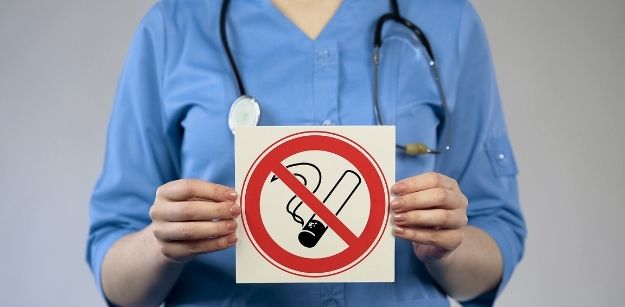I thought it would be useful to talk to you about tobacco’s harmful effects on human reproduction. This article is mainly aimed at my smoking patients, whom I often encourage to quit smoking with varying degrees of success.
According to Statistics UUSA, approximately 20-25% of people of reproductive age smoke every day. Despite years of effort and awareness by our governments in America, the number of people who quit smoking has stagnated compared to 10 years ago. Indeed, the National Institute of Public Health indicates that America’s smoking rate has stabilized at approximately 23%, representing more than 1.5 million smokers. American women smoke more than other Canadian women.

Besides, nearly 10% of non-smoking American women would live with an adult smoker at home. These women are, therefore, also exposed to second-hand smoke and its harmful effects on reproduction.
Tobacco contains more than 4,000 compounds belonging to chemical classes well known for their toxicity. The harmful effect of smoking on human reproduction is no longer in doubt, and its compounds affect the reproductive system at different levels in both women and men.
Due to a lack of information, our society knows very little about the harmful effects of smoking on fertility. Only 47% of infertile couples and 14% of pregnant women believe that smoking significantly alters their fertility. Moreover, too few fertility doctors, only 30%, inform teams and encourage them to quit smoking.
Yet smoking has been associated with multiple harmful effects on human reproduction, such as the premature onset of menopause, higher risk of infertility, and lower success rates in assisted reproduction. The increased chances of miscarriage, ectopic pregnancy, perinatal morbidity, and mortality are also well documented.
Effect on ovulation
Folliculogenesis is the process of maturation of the ovarian follicle and its ovum. It usually leads to ovulation every month. Smoking is harmful to different levels of the reproductive system, including folliculogenesis. It accelerates menopause by about 2 to 4 years. Smokers have 66% higher blood levels of follicle-stimulating hormone (FSH). This hormone is secreted by the pituitary gland and regulates ovulation. FSH generally rises when a woman’s ovarian supply of good eggs decreases.
In smokers, the ultrasound count of the anal follicles and the concentrations of antimullerian hormone (AMH) is significantly decreased. The growth of the ovarian hair is also often compromised. This is due to high concentrations of nicotine, cotinine, benzopyrene, cadmium, and other toxic tobacco metabolites in the follicular fluid. Ova exposed to such products has higher chromosomal abnormalities and breaks in their nucleic acids (DNA).
Morphologically, lower quality eggs are observed under the microscope. Several tobacco metabolites are also endocrine disruptors that modify ovulation, both through their estrogenic and antiestrogenic effects. When you do an in vitro fertilization in Mexico, higher doses of drugs are required to stimulate ovulation. The treatment duration is more extended, blood estrogen levels are lower, and the number of eggs collected is less.
Effect on Fallopian Tube Function
Regular migration of the embryo through the fallopian tubes into the uterine cavity is essential. Tobacco toxins interfere with this transport by mechanically modifying the smooth muscles’ contractions and decreasing the frequency of ciliary beats (ciliary dyskinesia) in the fallopian tubes. Heavy smokers (more than 20 cigarettes per day) are four times more likely to have an ectopic pregnancy (outside the uterus), most often in a fallopian tube.
Effect on fertilization
Tobacco is significantly associated with design delay. It harms not only fertilization but also the early development of the embryo. Indeed, oxidative stress caused by tobacco products leads to well-documented chromosomal instabilities in origin. It significantly reduces the probability of an egg being fertilized and an embryo reaching the blastocyst stage (5-6 days of life).
Smokers treated with in vitro fertilization have lower rates of fertilization in the laboratory. They, therefore, obtain fewer embryos per attempt and require twice as many treatments to conceive. Even exposure to second-hand smoke affects the chances of success in AHR.
Effect on Embryo Implantation
Implantation of the embryo into the uterine cavity requires the uterine lining (endometrium) to be receptive. The harmful effect of tobacco on the endometrium is known and also documented. Infertile women who smoke more than 10 cigarettes per day have significantly reduced the rate of embryo implantation (26%) compared to women who do not smoke (32%). From the first trimester onwards, more placental abnormalities are found in histopathology.
The uterus’ vascular perfusion is disturbed, and the activity of the uterine muscle, the myometrium. All this explains higher rates of miscarriage, preterm labor, intrauterine delay of fetal growth, placenta previa, premature detachment of the placenta, obstetrical complications in general and after birth, sudden infant death syndrome.
For those who smoke and are infertile, the first thing to do should be to quit smoking, even if it means getting the help you need to wean yourself off this addiction that is so harmful to your reproductive health.